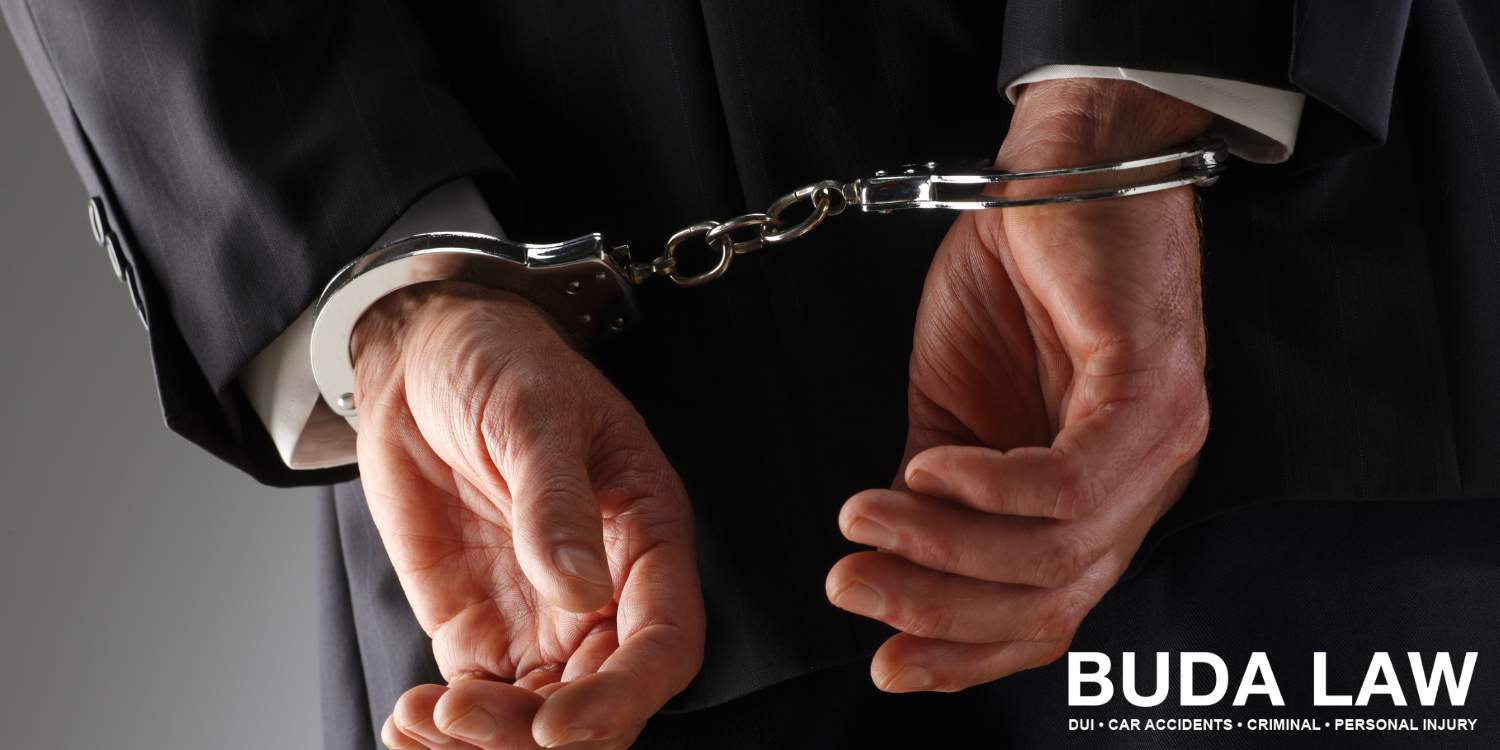A forcible felony represents one of the most serious classifications of crime, defined by actions that inherently involve violence or the threat of violence against individuals. Under Florida law, this category spans a wide array of offenses, from murder and sexual battery to robbery and arson, each carrying severe legal consequences and societal repercussions.
At Buda Law, our Tampa criminal defense attorneys understand the severity of forcible felonies and how the criminal charges can stay with an offender long after serving their sentence. In this blog, our Tampa criminal defense lawyers at Buda Law explain the crimes considered forcible felonies in Florida and how our legal team can help you fight these charges.
To discuss your forcible felony charge with an experienced criminal defense attorney, call Buda Law at (813) 322-2832 to schedule a free consultation today.
Forcible Felony Definition Under Florida Law
According to Florida Statutes § 776.08, forcible felonies are serious offenses characterized by the use or imminent threat of physical force or aggression. The statute lists various crimes that fall under this definition and includes treason, first-degree murder, second-degree murder, manslaughter, kidnapping, sexual battery, carjacking, home-invasion robbery, burglary, robbery, arson, aggravated assault, aggravated stalking, aggravated battery, aircraft piracy, unlawful throwing or placement of a destructive device or bomb, or any other felony which involves the use of violence or threat of physical force.

Forcible Felony Examples
In Florida, forcible felonies encompass a range of violent crimes defined by their nature of force or threat of force against individuals. These include:
- Treason: Treason is betraying one’s country, usually by attempting to overthrow the government or aiding its enemies.
- Murder: The unlawful calculated killing of one human being by another.
- Manslaughter: The unlawful killing of a human being without premeditation, which can be voluntary (in the heat of passion) or involuntary (through reckless behavior).
- Robbery: Robbery is the act of taking property from another person with the intent to permanently or temporarily deprive the person of the property by the use of force, violence, assault, or putting in fear.
- Sexual Battery: Any non-consensual sexual contact or behavior with another person can be considered sexual battery.
- Burglary: Entering a dwelling, structure, or conveyance with the intent to commit an offense inside is considered burglary.
- Aggravated Assault: Aggravated assault is an attack committed with a deadly weapon without the intent to kill or with the intent to commit a felony.
- Aggravated Battery: Deliberately causing great bodily harm, disability, or disfigurement, often involving the use of a deadly weapon.
- Kidnapping: Kidnapping is the abduction or confinement of a person against their will.
- Arson: Arson is the willful and unlawful causing of a fire or explosion to damage property.
- Carjacking: The act of taking another’s car by force or intimidation.
- Home-Invasion Robbery: The unlawful and forcible entry of a dwelling with the intent to commit a robbery and doing so while the occupants are present.
- Aggravated Stalking: Following, harassing, or cyberstalking another with a credible threat, causing the victim to fear for their safety.
Each of these crimes is deemed a forcible felony due to the inherent use or threat of physical force, violence, or violation against individuals.

Other Types of Felonies in Florida
In Florida, felony crimes encompass more acts that go beyond the use of deadly force or the threat of force. Beyond forcible felonies, these crimes include but are not limited to:
- Drug Offenses: This can range from possession and distribution to manufacturing and trafficking of controlled substances. Severity depends on the type and amount of drug involved, with penalties increasing for substances classified as more dangerous or in larger quantities.
- Theft Crimes: This covers acts from shoplifting (petit theft) to grand theft, where the property is unlawfully taken with the intent to permanently or temporarily deny the owner of it. The value of the stolen property often determines the severity of penalties.
- Property Crimes: Beyond theft, these crimes include burglary, arson, vandalism, and criminal mischief, involving unauthorized intrusion into, damage to, or interference with property rights.
- Cyber Crimes: As technology evolves, so do crimes involving digital means, including identity theft, internet fraud, hacking, and illegal downloading.
- White-Collar Crimes: Encompass a broad range of financial crimes, such as fraud, embezzlement, money laundering, and bribery, where the wrongful or criminal deception is intended to result in financial or personal gain.
Regardless of whether the crime involves the threat of deadly force or violence, felony charges should be taken seriously, as a conviction can result in large fines and lengthy prison sentences. If you’ve been accused of committing a felony, contact a Tampa felony defense attorney at Buda Law today.
Forcible Felonies and Self-Defense
Florida’s Stand Your Ground law, outlined in Florida Statutes § 776.012, removes the duty to retreat before using defensive force, allowing individuals to stand their ground if they’re in a place they have the right to be and aren’t conducting illegal activities.
This law is especially relevant to forcible felonies by allowing the use of force, including deadly force, to prevent an unlawful and forcible act, assuming the individual reasonably believes the force is necessary to prevent imminent death or injury.
When claiming self-defense regarding a forcible felony, several points are crucial:
- Reasonable Belief: The use of force must be based on a reasonable belief of imminent danger or the commission of a forcible felony.
- Location and Legality: The individual must be lawfully present at the location and not engaged in illegal activities.
- Proportionality: The force used should be proportional to the threat faced.
- Immunity: Successful self-defense claims can lead to immunity from prosecution, but the defendant bears the burden of proving the justification for using such force.
Applying the Stand Your Ground law involves careful consideration of these factors, with outcomes heavily dependent on the specifics of each case, including the perceived threat and the rationality of the response.

Legal Implications of Forcible Felony Charges
In Florida, forcible felonies encompass crimes characterized by the threat of physical force or violence, including murder, sexual battery, and robbery. A conviction for these violent crimes can lead to long-term or life imprisonment, substantial fines, and a permanent criminal record that affects employment, housing, and civil rights, such as voting and firearm ownership.
Beyond the legal penalties, individuals accused of forcible felonies face societal disgrace and potential lifelong challenges in rehabilitation and reintegration into the community.
The gravity of these charges also places a significant emphasis on the defense strategy, particularly around claims of self-defense under the Stand Your Ground law, where the understanding of legal self-defense can be pivotal in the outcome of a case. Given these stakes, working with an experienced criminal defense attorney like Andrew Buda is crucial when fighting forcible felony charges.
How a Tampa Criminal Defense Attorney Like Andrew Buda Can Help
From the beginning, Tampa criminal defense attorney Andrew Buda meticulously reviews your forcible felony charges, including evidence, police reports, witness statements, and any available surveillance footage, to identify inconsistencies or violations of rights that could weaken the prosecution’s case.
Using his experience working for the Florida criminal prosecution, attorney Andrew Buda will develop a tailored defense strategy, possibly highlighting self-defense, lack of intent, or mistaken identity, among other defenses. This experience is also beneficial when negotiating with the criminal prosecution to reduce the forcible felony charges or secure alternative sentencing options.
Andrew Buda and his legal team ensure their client’s side of events is heard and understood throughout the legal process. When you choose Buda Law for your forcible felony defense, you can trust that your rights will be defended at every turn.

Charged With a Forcible Felony in Tampa? Call Buda Law For a Free Consultation Today
Facing charges of a forcible felony in Tampa can carry significant legal, social, and personal consequences. The severity of forcible felony charges requires the experience and dedication of a criminal defense attorney like Andrew Buda.
With a deep understanding of Florida’s legal system and a commitment to achieving the best possible outcomes, Andrew Buda provides the strategic defense and personalized attention your case requires.
Don’t navigate forcible felony charges alone. Contact Buda Law at (813) 322-2832 or contact us online for a free consultation and take the first step toward fighting the criminal charges against you.
